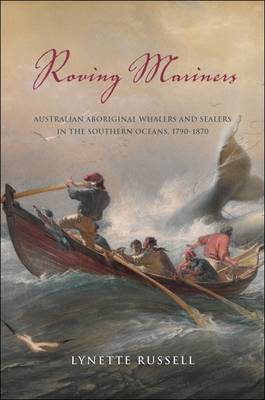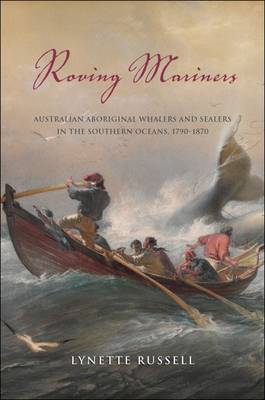
- Afhalen na 1 uur in een winkel met voorraad
- Gratis thuislevering in België vanaf € 30
- Ruim aanbod met 7 miljoen producten
- Afhalen na 1 uur in een winkel met voorraad
- Gratis thuislevering in België vanaf € 30
- Ruim aanbod met 7 miljoen producten
Zoeken
Roving Mariners
Australian Aboriginal Whalers and Sealers in the Southern Oceans, 1790-1870
Lynette Russell
€ 53,45
+ 106 punten
Uitvoering
Omschrijving
For most Australian Aboriginal people, the impact of colonialism was blunt--dispossession, dislocation, disease, murder, and missionization. Yet there is another story of Australian history that has remained untold, a story of enterprise and entrepreneurship, of Aboriginal people seizing the opportunity to profit from life at sea as whalers and sealers. In some cases participation was voluntary; in others it was more invidious and involved kidnapping and trade in women. In many cases, the individuals maintained and exercised a degree of personal autonomy and agency within their new circumstances. This book explores some of their lives and adventures by analyzing archival records of maritime industry, captains' logs, ships' records, and the journals of the sailors themselves, among other artifacts. Much of what is known about this period comes from the writings of Herman Melville, and in this book Melville's whaling novels act as a prism through which relations aboard ships are understood. Drawing on both history and literature, Roving Mariners provides a comprehensive history of Australian Aboriginal whaling and sealing.
Specificaties
Betrokkenen
- Auteur(s):
- Uitgeverij:
Inhoud
- Aantal bladzijden:
- 235
- Taal:
- Engels
- Reeks:
Eigenschappen
- Productcode (EAN):
- 9781438444246
- Verschijningsdatum:
- 2/07/2013
- Uitvoering:
- Paperback
- Formaat:
- Trade paperback (VS)
- Afmetingen:
- 152 mm x 226 mm
- Gewicht:
- 340 g

Alleen bij Standaard Boekhandel
+ 106 punten op je klantenkaart van Standaard Boekhandel
Beoordelingen
We publiceren alleen reviews die voldoen aan de voorwaarden voor reviews. Bekijk onze voorwaarden voor reviews.











